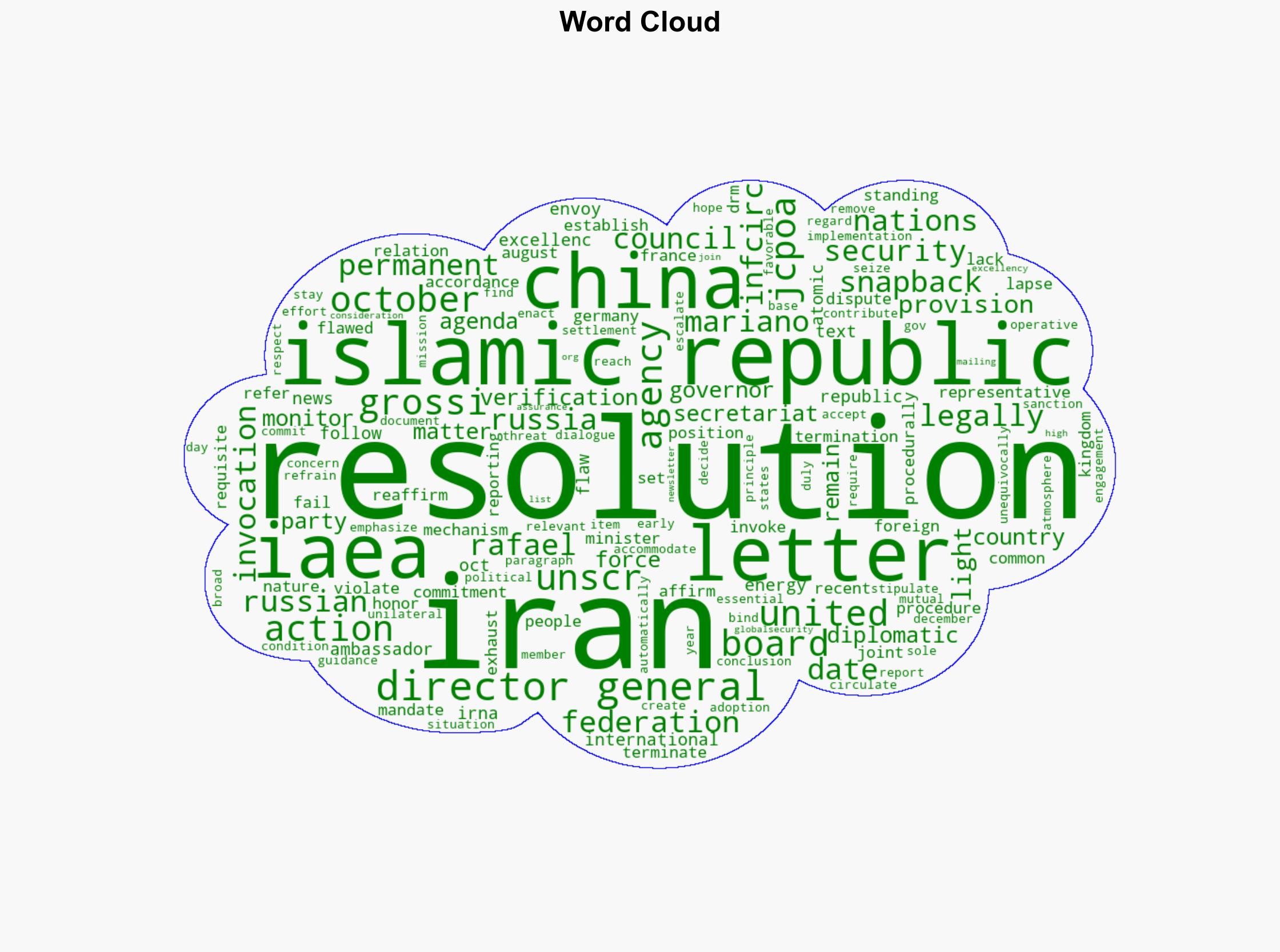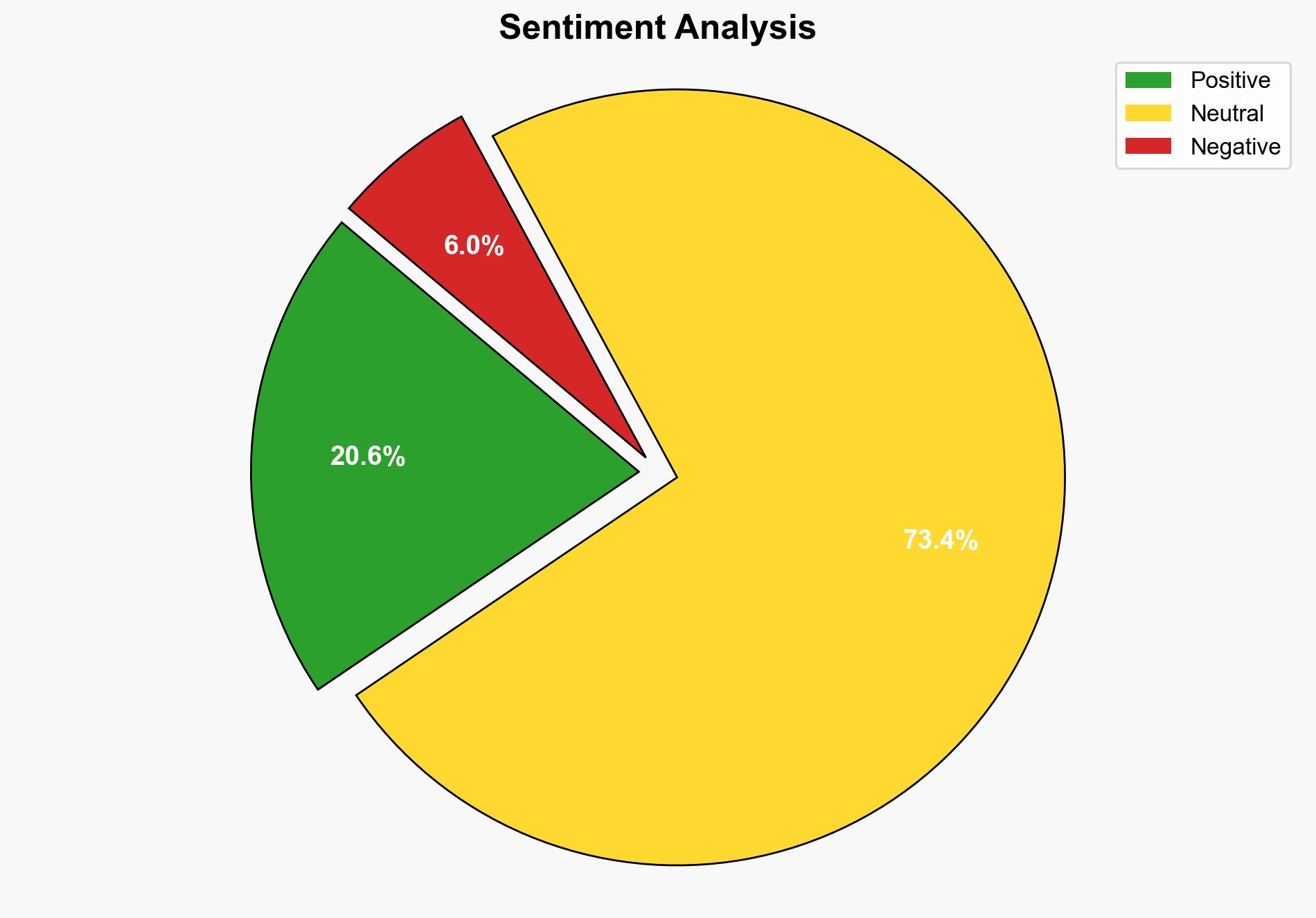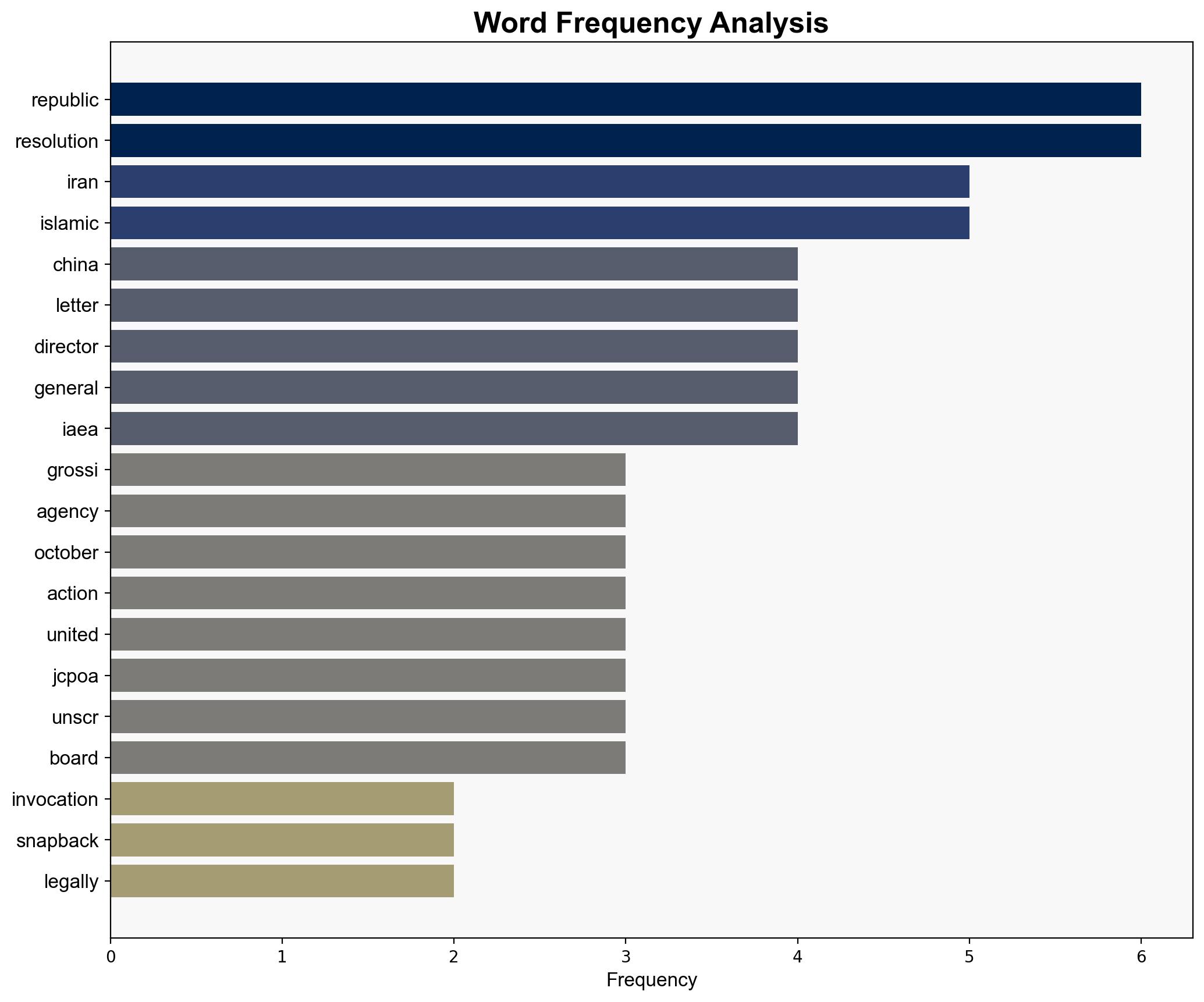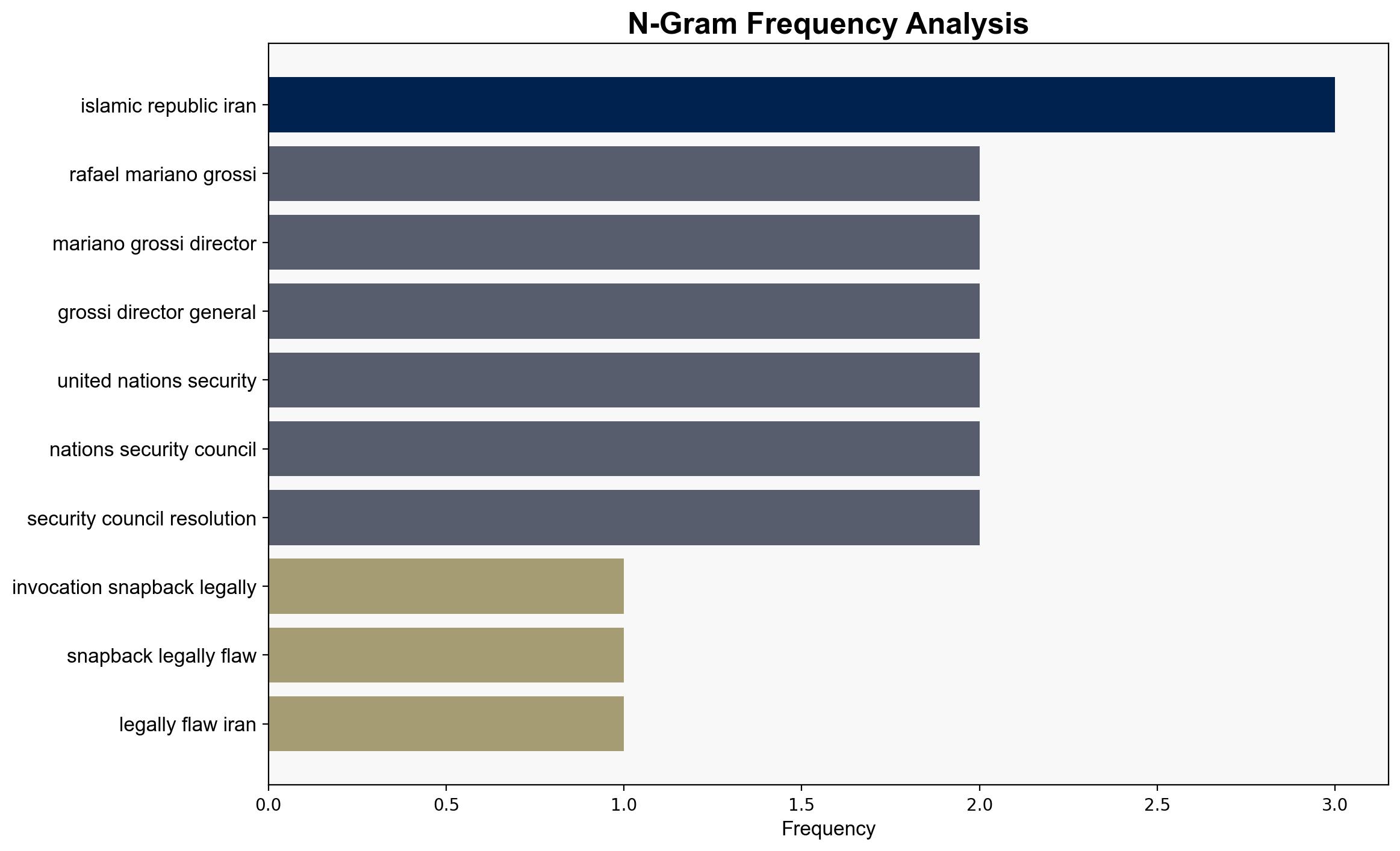Invocation of snapback is legally flawed Iran China Russia say to Grossi – Globalsecurity.org
Published on: 2025-10-26
Intelligence Report: Invocation of Snapback is Legally Flawed Iran China Russia Say to Grossi – Globalsecurity.org
1. BLUF (Bottom Line Up Front)
The most supported hypothesis is that Iran, China, and Russia are strategically challenging the legal basis of the snapback mechanism to undermine its legitimacy and maintain their geopolitical interests. Confidence Level: Moderate. Recommended action: Engage in diplomatic dialogue to address legal concerns while preparing for potential non-compliance scenarios.
2. Competing Hypotheses
Hypothesis 1: Iran, China, and Russia genuinely believe the snapback invocation is legally flawed and are seeking to uphold international law and agreements.
Hypothesis 2: The countries are using legal arguments as a pretext to protect their geopolitical interests and weaken the enforcement of the snapback mechanism.
Using the Analysis of Competing Hypotheses (ACH) 2.0, Hypothesis 2 is better supported due to the historical context of these nations often challenging Western-led initiatives and their vested interests in maintaining relations with Iran.
3. Key Assumptions and Red Flags
Assumptions:
– The snapback mechanism’s legal framework is open to interpretation.
– Iran, China, and Russia have aligned interests in opposing Western influence.
Red Flags:
– Lack of transparency in the legal arguments presented.
– Potential bias in the source, as the information is disseminated by the Islamic Republic News Agency.
4. Implications and Strategic Risks
The challenge to the snapback mechanism could lead to increased geopolitical tensions, particularly if the involved parties escalate their rhetoric or actions. There is a risk of undermining the JCPOA framework, potentially leading to Iran resuming its nuclear activities unchecked. Economically, this could affect global oil markets and regional stability.
5. Recommendations and Outlook
- Engage in multilateral diplomatic efforts to clarify legal interpretations and seek consensus on the snapback mechanism.
- Prepare contingency plans for potential non-compliance by Iran, including sanctions or other diplomatic measures.
- Scenario Projections:
- Best Case: Legal clarity is achieved, and all parties recommit to the JCPOA framework.
- Worst Case: Breakdown of negotiations leads to regional instability and nuclear proliferation risks.
- Most Likely: Continued diplomatic stalemate with periodic escalations in rhetoric.
6. Key Individuals and Entities
– Rafael Mariano Grossi
– Permanent Representatives of China, Iran, and Russia
7. Thematic Tags
national security threats, geopolitical strategy, international law, nuclear non-proliferation




